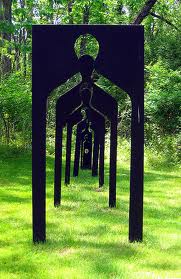American Novelist
1892 - 1973
Memory makes a strange bedfellow. Have you ever forgotten something you needed to remember? Or have you remembered something you needed to forget? Some people can remember the smallest of details. I tend to forget the details, particularly of place and fashion. Clothes rarely appear in my conscious mind let alone in my memory. And if I have been insulted by word or deed, I usually forgive and forget. My parents and my wife can not understand how I forgot so much of my childhood.
And yet the strangest of details will find their way into my poems. Details from somewhere in my past. The last twenty years have seen an unusual growth in memoirs — both truthful and false. Yet memory continues to haunt. Remembering the wrong events can hold you hostage to your past. What we remember impacts how we behave in the here and now. Our memory defines who we believe we are. What memories do you need to forget? What memories do you need to hold onto? What memories influence how you behave and help create the person who you have become? What memories appear in your writing or your art?





























